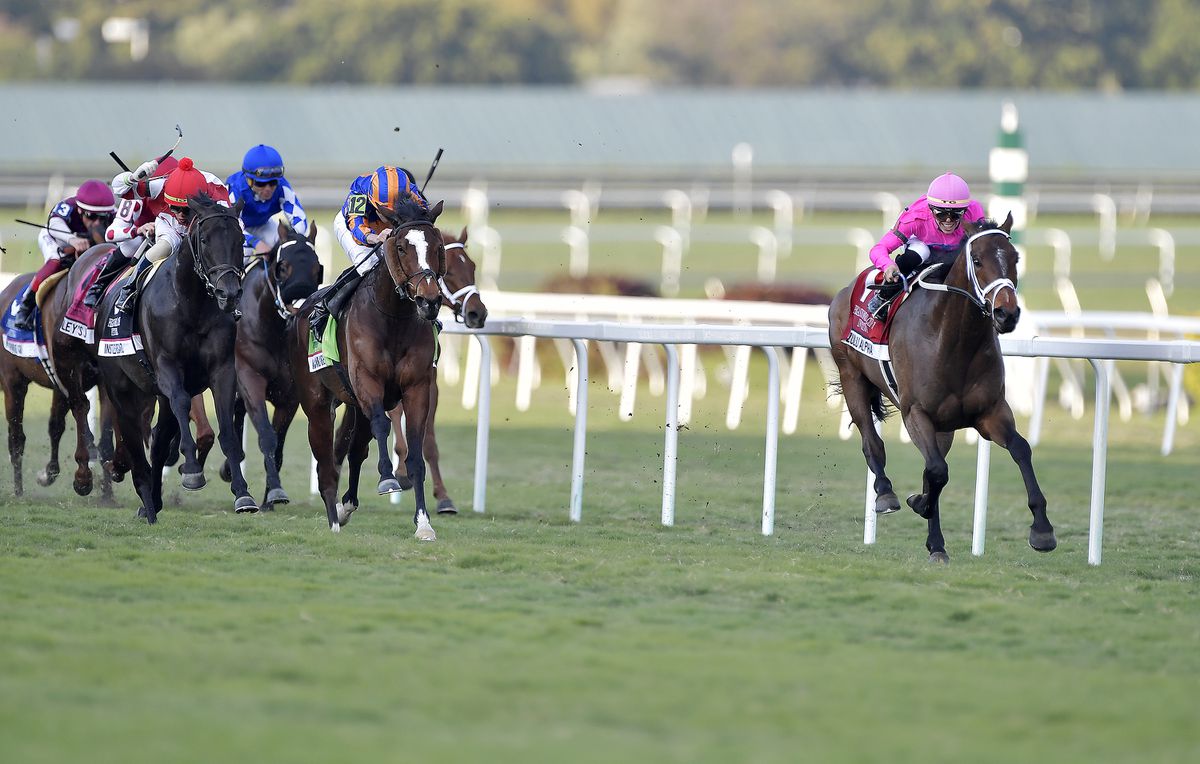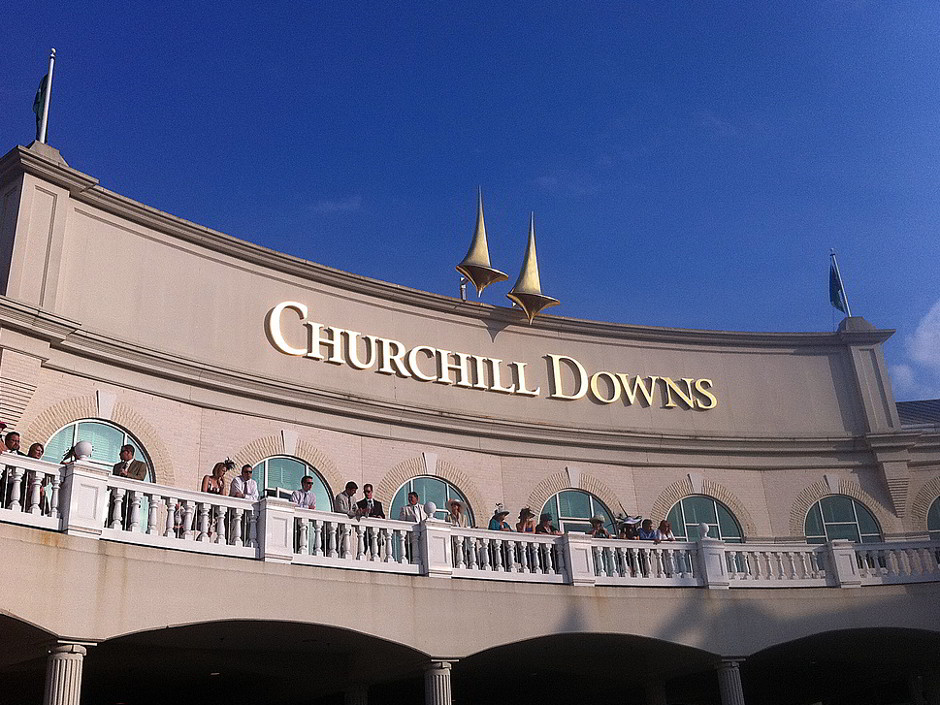About Churchill Downs
We at MacroHint like to think, analyze, think some more, write and then edit.
And then think again.
We also don’t consider ourselves to be particularly attracted to or attached to material things.
The same might not necessarily be true for those who like to fly down on their private planes, hop into a heavily tinted Chevrolet SUV, have “the help” drop off their bags and settle down to watch the horses at Churchill Downs which is, of course, where the Kentucky Derby is held.
It’s sort of fascinating, isn’t it?
From stressed out Silicon Valley whiz kids making the new crypto doohickey to heirs of billion dollar fortunes gathering in their own respective booths and seating areas, breathing in the fresh cut grass, watching the beautiful caramel brown horses gallop and warm up before the big show?
Eh, whatever.

We’re just really interested in taking in the sights of a company’s financials and breathing in whether or not this company’s stock is worth investing in or not, or in more relevant terms, whether or not this jockey is worth its weight in horse.
Horses are cool.
Before delving into Churchill Downs’ financials, we feel the need to mention that aside from blocking off seating reservations and other guest accommodations, the company also makes money from its gaming entertainment venues, mainly associated with online wagering or betting on horses at the Kentucky Derby.
Also, according to TD Ameritrade’s platform, Churchill owns TwinSpires, another horse race (and sports) wagering platform, as the company has also been engaged in the physical gaming (betting) industry, holding slot machines and video lottery terminals as well.
This needed to be mentioned because many are quick to assume that Churchill Downs is just an organization that makes money from the Kentucky Derby each year and that’s it, but it has a somewhat extensive reach in other pieces of the gaming (gambling) industry.
All that to say, Churchill Downs’ largest attraction and prominent money maker is the Derby, but it also has other relevant streams of revenue.
Onto the financials.
Churchill Downs’ stock financials
With a present market capitalization of $7.8 billion, trading at a share price of almost $210, Churchill Downs also shells out an annual dividend of $0.714 (which is an oddly specific figure, but we’ll go with it) and has a price-to-earnings (P/E) ratio of 16.83.
So far, so average as the company pays out a relatively unexciting dividend and is trading at a share price that is slightly lower than what it is actually worth, or in other words, a little undervalued.
Not bad and nothing special, at least so far.
One of the initially compelling aspects of this company’s main line of business is that it is recession proof. Wealthy spectators of the Kentucky Derby aren’t likely to cease attending the event if the market is having a bad year, which is great for Churchill Downs.
Additionally, those who are less affluent and don’t attend but just place bets and gamble on the event(s) are potentially mired in a serious gambling addiction (some, not necessarily all, we acknowledge) and no matter what, are going to bet their money on the horses, even if they aren’t able to make the payments on their third credit card.

We view this as a very sad reality but nevertheless true.
We have also attached the hotline number at the end of this article.
Evidently, from an investor’s point of view, this is a reality that one has to be comfortable with, as the likelihood of your shares in the company appreciating over time due to poor people placing bets they can’t afford to lose is high, but at any rate is enormously beneficial to a company such as Churchill Downs.
This is not a slight to Churchill Downs, as business is business and their job is to make money for its shareholders and grow its business with technology and other related favorable trends, but rather it’s just something to keep in mind moving forward.
Moving onto the company’s balance sheet, Churchill Downs’ management team tends to nearly $3 billion in total assets and around $2.7 billion in total liabilities.
We’re not exactly sure why the company’s amount of total liabilities is so high relative to its present total assets, other than the fact that operating in the digital gaming space and going up against some stiff competition, especially early on in the process can be expensive and of course, operating one of the world’s most esteemed horse racing events can be pricey.
Overall, we understand and are fine with the company’s overall balance sheet structure given the company’s dominant position in the niche luxury travel space.
As it relates to the company’s income statement, Churchill’s total revenue over the past five years has seen a general rise, placed at $883 million in 2017 and rising to its most recently reported total revenue figure of a hair under $1.6 billion (2021).
We attribute this growth in total revenue to the company bulking up its digital gaming capabilities and sadly to what we mentioned before regarding gamblers and their incessant itch to place bets, of which Churchill likely generates a handsome commission from, regardless of the economic cycle.
According to the company’s cash flow statement, Churchill’s total net income has been relatively strong, fluctuating throughout the past five years and ranging between -$82 million (2020) and $353 million (2018). In addition to the company’s overall stable net income, Churchill’s total cash from operations has remained positive during the same time period, which we’re happy about, as it indicates that the company has found a consistent knack for carving out some cash from its operations.
Churchill Downs’ stock fundamentals
We’d assume that the margins in the luxury event hosting space are fairly high and that taking a bit off of the top of each bet placed (as a commission fee) tends to fatten a company’s margins.
Churchill Downs appears to be far from an exception.

Namely, the company’s trailing twelve month (TTM) net profit margin is currently 28.34% to the industry’s average of 6.75%.
This is a material difference, of course, favoring those who want to invest or those that are already invested in Churchill Downs’ stock.
In addition to the company’s strong ability to produce a net profit margin far greater than that of the industry (on average), Churchill’s TTM returns on equity, assets and investment are all higher than that of the industry’s average as well.
Should you buy Churchill Downs stock?
This is one of those companies that we like to look through both an objective, numbers-based scope accompanied with a moral lens.
However, as it is our ultimate responsibility to give our readers our objective opinion(s) on the company’s stock and whether or not we think it should be considered as a solid long-term investment or not, we must say that the company has great appeal to many, exceptionally strong profit margins, considerable returns metrics and a fair ability to produce cash even during times of plentiful economic uncertainty.
We give Churchill Downs stock a “buy” rating.
DISCLAIMER: This analysis of the aforementioned stock security is in no way to be construed, understood, or seen as formal, professional, or any other form of investment advice. We are simply expressing our opinions regarding a publicly traded entity.